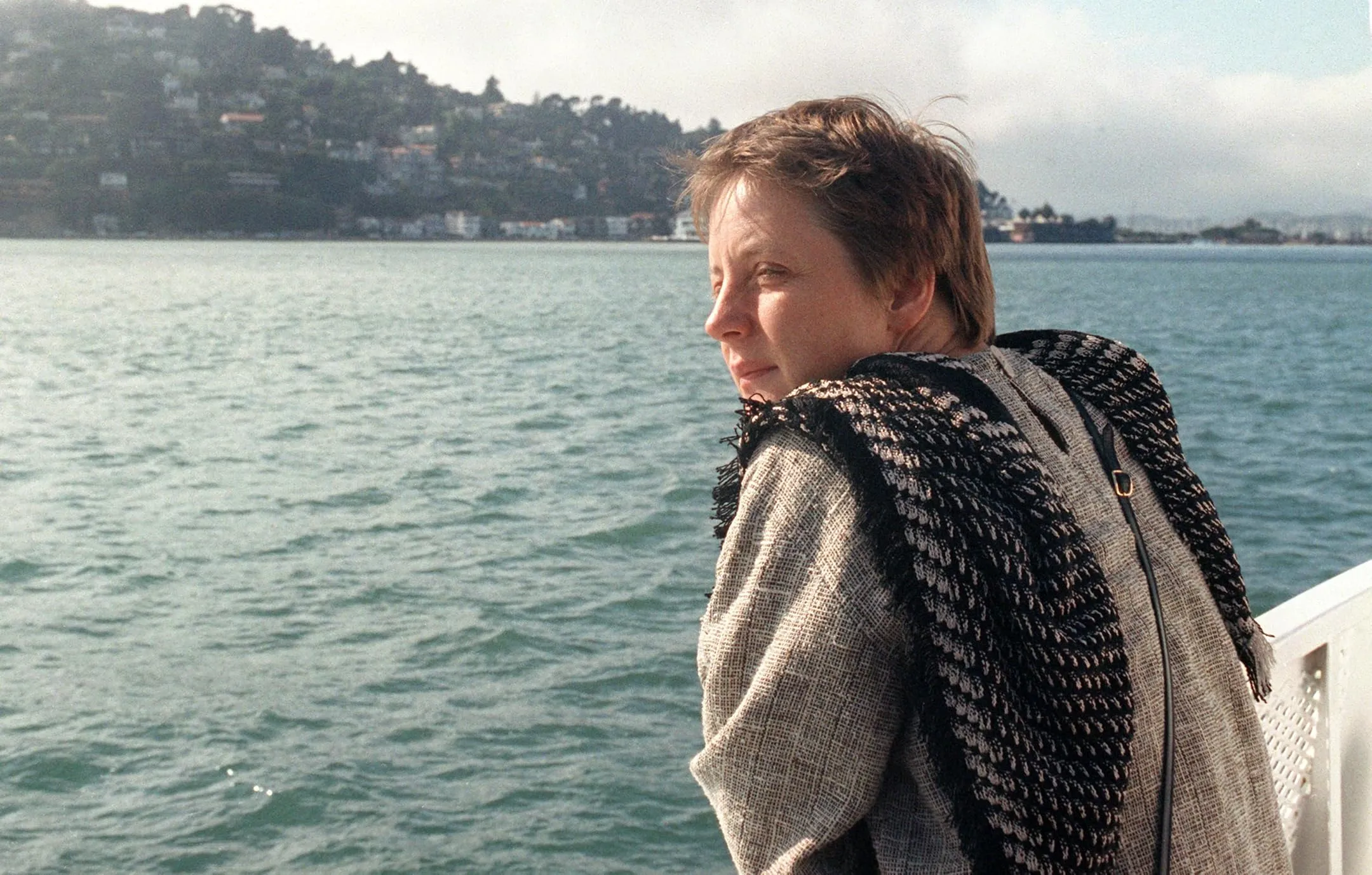Angela Merkel at Harvard in 2019 delivers a crisp appeal to dismantle walls—an image set against footage of Donald Trump rallying for his Mexican border barrier. This bold contrast frames Eva Weber’s documentary, Merkel, as both a portrait of a leader and a meditation on freedom.
Directed by a German-born filmmaker based in London, the film blends archival speeches, childhood anecdotes and on-camera testimonials to trace Merkel’s path from the GDR to the world stage. Sprinkled with interviews from figures as varied as Tony Blair, Susan Rice and filmmaker Volker Schlöndorff, it balances intimate recollection with geopolitical analysis.
In what follows, this review will explore how Merkel captures the interplay between personal history and global power, assesses the effectiveness of its visual storytelling, and considers the cultural forces shaping its subject’s legacy—all through a lens that connects regional history with international resonance.
From Lab Coat to Chancellor: Merkel’s Formative Years
Growing up in the tightly monitored society of East Germany, Merkel’s early life was marked by physics experiments at the Academy of Sciences and the ever-present Stasi informant at any gathering over twenty. Weber uses home-movie footage alongside music clips of East German oompah tunes to evoke that era’s blend of resilience and restraint.
The fall of the Berlin Wall emerges as both personal liberation and global inflection point—one that propelled her from a research doctorate into the fractious world of reunified German politics.
Appointed by Helmut Kohl in 1991 as minister for women and youth, Merkel navigated a West-dominated cabinet and, by 2005, became the first woman chancellor.
Here, archival interviews—ranging from Merkel’s own recollections to commentary on her scientific discipline—flesh out a leader whose background straddles Cold-War division and twenty-first-century unity.
Filmic Architecture: Narrative and Visual Craft
Merkel forgoes strict chronology, opening with the Harvard address before looping back to 1991. This flash-forward structure mirrors the leader’s strategic foresight but occasionally jars when political milestones leapfrog each other.
Interviewees span former heads of state (Hillary Clinton), journalists (Christiane Amanpour) and friends turned filmmakers, creating a tapestry of perspectives. Visually, the documentary cuts from black-and-white DDR newsreels to crisp HD footage of G7 meetings, punctuated by translated on-screen captions.
Music cues—such as the melancholic lyrics “You forgot to bring the color film”—underscore thematic riffs on memory and perception. The recurring “wall” motif, invoked in both Berlin and US contexts, solidifies a connective thread. Yet the reliance on external commentary over private archives occasionally limits emotional depth, leaving viewers more informed than moved.
Tectonic Themes: Leadership, Identity, and Global Resonance
Merkel’s tenure is refracted through crises: steering Europe through the 2008 financial upheaval, managing an energy partnership with Russia that courted dependency, embracing Syrian refugees in 2015 and confronting a pandemic. Each episode highlights her pragmatic, science-informed approach—she treats policy like an experiment, weighing variables before committing.
As a woman in a male-dominated arena, her calm demeanour challenged stereotypes even as patrons probed her wardrobe, playing clips of TV hosts’ patronizing questions. The film’s cross-cultural analysis invites comparison to political documentaries like The Fog of War, revealing how regional histories shape leadership styles.
At times, the film brushes past domestic initiatives—EU fiscal solidarity, healthcare reform—that would enrich the narrative. Yet it captures a paradox: her self-effacing public image versus the immense influence she wielded as de facto head of the European Union. Viewers curious about the mechanics of soft power will find Merkel a thoughtful case study in how a leader’s origins and analytical methods converge to shape global discourse.
Full Credits
Director: Eva Weber
Writer: Eva Weber
Producers: Eva Weber, Lizzie Gillett, Sonja Henrici, Sigrid Jonsson Dyekjær
Executive Producers: Dawn Porter, Romain Bessi, Regina Bouchehri, Gunnar Dedio, Geralyn White Dreyfous, Kathryn Everett, Philip Knatchbull, Philippe Levasseur, Maria Logan, Claire Lucas, Regina K. Scully, Anne Sheehan, Vijay Vaidyanathan, Paul Wiegard, Marc Smit
Cast: Angela Merkel (Self), Robin Alexander (Self), Joe Biden (Self), Tony Blair (Self), Ralph Bollmann (Self), Sabine Christiansen (Self), Hillary Clinton (Self), Thomas de Maizière (Self), Melissa Eddy (Self), Mikhail Gorbachev (Self), Nina Hagen (Self), Robert Kimmitt (Self), Helmut Kohl (Self), Dirk Kurbjuweit (Self), Christine Lagarde (Self), Lord McDonald (Self), Barack Obama (Self), Vladimir Putin (Self), Ronald Reagan (Self), Condoleezza Rice (Self)
Director of Photography (Cinematographers): Michael Richard Martin, Reinhold Vorschneider, Konrad Waldmann
Editors: Daniel Greenway, Alexandra Strauss
Composer: Jon Opstad
The Review
Merkel
Weber’s Merkel succeeds as a thoughtful exploration of a scientist-turned-stateswoman whose quiet resolve reshaped Europe’s political landscape. The film’s blend of archival material, cross-cultural reflections and expert testimony illuminates her strategic pragmatism and moral compass, even if deeper dives into domestic policy are missed. Its “wall” metaphor resonates across contexts, inviting viewers to reconsider borders both literal and ideological.
PROS
- Rich archival footage anchors Merkel’s personal and political evolution
- Cross-cultural juxtapositions (Berlin Wall vs. US border) sharpen thematic impact
- Expert interviews offer diverse global perspectives
- Visual and audio design reinforces key metaphors
- Highlights Merkel’s scientific, data-driven leadership style
CONS
- Limited exploration of domestic policies and EU initiatives
- Reliance on commentary over intimate, behind-the-scenes access
- Nonlinear pacing can feel disjointed
- Occasional underuse of private archives or personal anecdotes
- Surface treatment of complex geopolitical decisions
